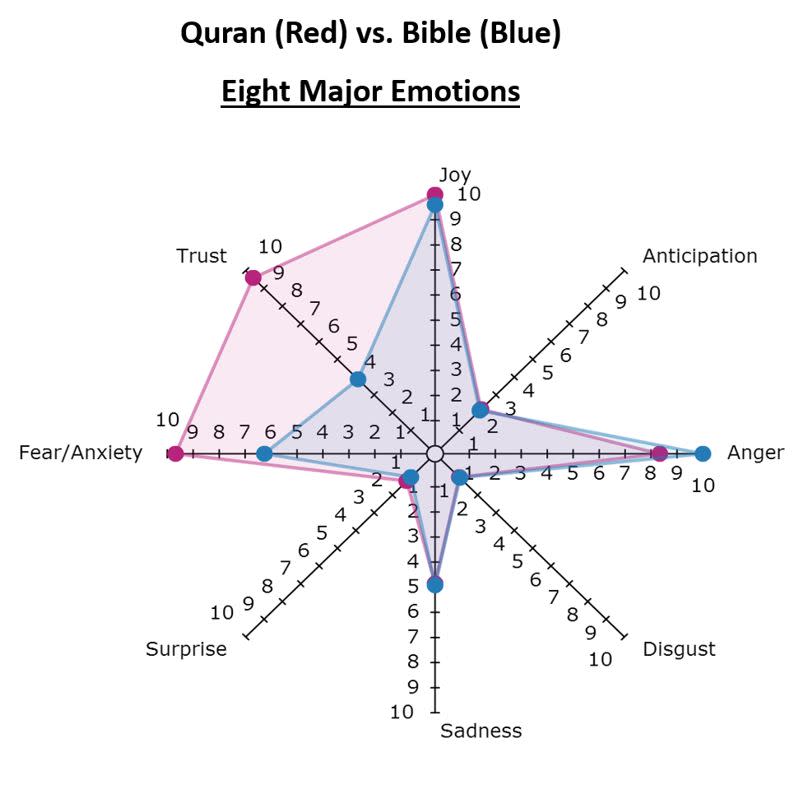Here's What Happens When You Compare Violence in the Quran to Violence in the Bible
To the well-informed this staggering statistic should come as no surprise: Fifty-eight percent of Americans have an unfavorable opinion of Islam. And with that comes a laundry list of misinformation about the faith's holy text, the Quran.
But a recent project by data analyst and research marketer Tom Anderson turns one common misconception on its head: that the Quran is more consumed by blood thirst than the Christian Bible. Using text-analysis tools developed by OdinText, Anderson determined what percentage of the Bible was devoted to discussion of violence and then compared those results to that of the Quran.
The point of the project, Anderson wrote, was to "uncover with as little bias as possible the extent to which any of these texts is qualitatively and/or quantitatively distinct from the others using metrics associated with violence, love and so on."
Read More: This Is What Happens When You Show People a Bible With a Quaran's Cover on It
Of the three books, the project found, the Old Testament is the most violent, with approximately 5.3% of the text referring to "destruction and killing" — the Quran clocked in at just 2.1%, with the New Testament slightly higher at 2.8%.
While the New Testament led in mentions of the concept of love, the Quran leads heavily in mentions of mercy — thanks partially to Allah's title, "the merciful."
Perhaps the most notable difference, though, was between the frequency of positive emotions that surfaced in the Quran when compared to both books of the Bible, as depicted in the chart below.

Anderson is careful to point out the shortcomings of his findings more than once, noting the sensitivity of the issue his work tackled. By his own admission, his findings are "by no means intended to be conclusive."
"Ours is a 30,000-foot, cursory view of three texts: the Quran and the Old and New testaments," Anderson wrote.
Then there's the inherent issue in using automated tools to generate statistics that do not take context into account.
According to Anderson, the findings challenge the popular notion among Westerners that Muslims subscribe to a particularly violent faith. Indeed, he concluded, "of the three texts, the content in the Old Testament appears to be the most violent."
This sentiment was recently illustrated by Dutch filmmakers Sacha Harland and Alexander Spoor, who read passages to passersby from what they said was the Quran — but actually pulled from the Bible.
"To me, this sounds like they want to oppress you and force you to believe what they believe," one woman told the two.
However, Atlantic contributor Caner K. Dagli wrote that understanding the connection between religion and violence necessitates a deeper kind of analysis.
"Determining what texts 'plainly' say is not as easy as spotting some words on a page," Dagli wrote. "Islam's interpretative tradition exists because the differences between plain and hidden, elliptical and direct, absolute and qualified, are not always obvious."



